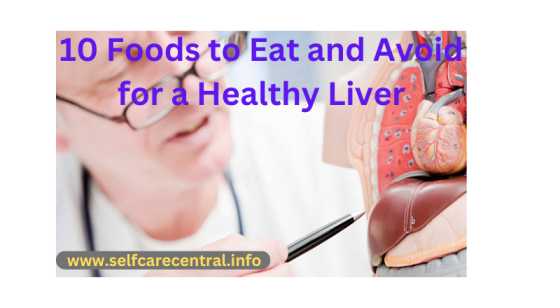1. Grasping the Significance of Liver Wellness
1.1. Liver’s roles in the body
The liver acts as a diligent worker in our body, performing numerous crucial tasks. It purifies our blood, produces essential proteins, and stores energy. It operates as our body’s personal chemical plant, constantly working to maintain our health.
1.2. Prevalent liver conditions and their origins
Liver ailments can arise from various factors, including excessive alcohol consumption, certain medications, or specific viruses. Common liver issues include fatty liver disease, hepatitis, and cirrhosis. Understanding these conditions can help us better care for our liver.
1.3. Dietary influence on liver function
Our diet significantly affects liver performance. Similar to how nutritious food benefits our overall well-being, it also supports liver function. Consuming appropriate foods can enhance liver efficiency, while certain foods may overburden it.
Read more: 7 Natural Remedies That May Help Reduce Hypertension
2. Foods Beneficial for Liver Health
2.1. Green leafy vegetables
Leafy greens are highly beneficial for liver health. Vegetables like spinach, kale, and arugula contain compounds that aid in toxin elimination. Consider adding spinach to your morning smoothie or enjoying a large salad for lunch.
2.2. Berries and other antioxidant-rich fruits
Berries are flavorful and advantageous for liver health. Blueberries, strawberries, and raspberries are rich in antioxidants, which protect the liver from harm. Try sprinkling berries on your cereal or yogurt for a tasty liver-friendly boost.
2.3. Fatty fish and omega-3 sources
Fish such as salmon, mackerel, and sardines are abundant in beneficial fats called omega-3s. These fats help reduce bodily inflammation, benefiting liver health. For those who don’t enjoy fish, alternatives like chia seeds or walnuts offer similar benefits.
2.4. Nuts and seeds
Nuts and seeds are natural sources of nutrients. They contain vitamin E, which is particularly beneficial for liver health. A handful of almonds, sunflower seeds, or pumpkin seeds makes for a nutritious snack that supports liver function.
2.5. Whole grains
Whole grains provide sustained energy for the body without overburdening the liver. Consider substituting white bread with whole grain varieties or having oatmeal for breakfast. The fiber and nutrients in whole grains are beneficial for liver health.
Read more: Effective Home Treatments for Dry Cough
3. Foods to Limit for Liver Health
3.1. Processed and fast foods
Processed and fast foods can be challenging for the liver to process. Try to reduce consumption of items like chips, cookies, and fast food burgers. Your liver will benefit more from home-cooked meals.
3.2. Sugary beverages and snacks
Sugary drinks and snacks can be detrimental to liver health. Excessive sugar intake can lead to fatty liver. Instead of soda, opt for flavored water or unsweetened tea. For snacks, fruit can satisfy sweet cravings in a healthier manner.
3.3. Alcohol and its impact on the liver
Alcohol can be particularly taxing on the liver. If you choose to drink, moderation is key. Consider replacing some alcoholic beverages with mocktails or sparkling water with lime.
3.4. High-sodium foods
Excessive salt intake can cause liver swelling. Try to limit consumption of foods high in sodium, such as canned soups, chips, and processed meats. Instead, flavor your food with herbs and spices for a tasty, liver-friendly meal.
3.5. Red and processed meats
Red and processed meats can be challenging for the liver to process. Try to limit items like bacon, sausages, and beef. Consider experimenting with plant-based protein options or lean poultry as alternatives.
4. The Importance of Hydration in Liver Health
4.1. Water’s role in liver function
Water is essential for optimal liver function. It aids in toxin elimination and maintains overall bodily processes. Aim to drink water throughout the day. If you find plain water unappealing, try adding lemon or cucumber slices for variety.
4.2. Potential benefits of herbal teas
Herbal teas may offer benefits for liver health. Green tea, dandelion tea, and milk thistle tea are thought to support liver function. However, consult with your healthcare provider before introducing new herbal teas, especially if you’re taking medication.
4.3. Beverages to reduce or avoid
Some beverages can be challenging for the liver. Sugary sodas, energy drinks, and alcohol can overwork the liver. Try to limit these and opt for water, herbal teas, or occasional fresh fruit juice instead.
5. Lifestyle Factors Complementing a Liver-Healthy Diet
5.1. Regular exercise and its effect on liver health
Exercise supports liver health. It aids in weight management and can help improve fatty liver disease. Even moderate activities like brisk walking or dance classes can be beneficial.
5.2. Stress management techniques
Stress can affect overall health, including liver function. Finding ways to relax can be helpful. Consider deep breathing exercises, yoga, or taking time to listen to your favorite music.
5.3. The importance of adequate sleep
Sleep allows the body, including the liver, to rest and repair. Aim for 7-9 hours of sleep each night. Establishing a bedtime routine, such as reading a book or taking a warm bath, can help improve sleep quality.
6. Incorporating Liver-Friendly Foods into Your Diet
6.1. Meal planning tips
Planning meals can make it easier to include liver-friendly foods in your diet. Consider dedicating time each week to plan meals and snacks. This can help ensure a good mix of healthy foods and reduce reliance on less healthy options when hungry.
6.2. Healthy recipes featuring liver-supportive ingredients
Cooking with liver-friendly ingredients can be enjoyable and delicious. Consider a spinach and berry smoothie for breakfast, a colorful salad with grilled chicken for lunch, and baked salmon with roasted vegetables for dinner.
6.3. Balancing macronutrients for optimal liver function
The liver benefits from a balanced intake of proteins, carbohydrates, and fats. Try to include some of each in your meals. A general guideline is to fill half your plate with vegetables, a quarter with lean protein, and a quarter with whole grains.
7. Understanding Portion Sizes and Moderation
7.1. The concept of mindful eating
Mindful eating involves paying full attention to your food. Try to eat slowly, savor the flavors, and stop eating when you feel satisfied rather than overly full.
7.2. Guidelines for appropriate serving sizes
Determining appropriate serving sizes can be challenging. A helpful method is to use your hand as a guide: your palm for protein, your fist for vegetables, your cupped hand for carbohydrates, and your thumb for fats. This can help maintain portion control without precise measurements.
7.3. The risks of extreme diets on liver health
Crash diets or extreme eating plans can be detrimental to liver health. Instead, focus on making small, sustainable changes over time. This approach is more beneficial for your liver and overall health.
8. Supplements and Liver Health
8.1. Vitamins and minerals that support liver function
Certain vitamins and minerals can support liver health. Vitamin E, vitamin C, and zinc may be beneficial. However, it’s generally best to obtain these nutrients from whole foods when possible.
8.2. Herbal supplements: benefits and potential risks
Some herbal supplements, such as milk thistle, are thought to support liver health. However, exercise caution, as not all supplements are safe for everyone. They may have varying effects on different individuals.
8.3. Consulting with healthcare professionals before starting supplements
Before beginning any new supplements, it’s crucial to consult with your doctor or a registered dietitian. They can provide guidance on what’s safe and potentially beneficial for your specific situation.
9. Recognizing Signs of Liver Distress
9.1. Common symptoms of liver problems
Liver issues may manifest through symptoms such as fatigue, pain in the upper right abdomen, or yellowing of the skin or eyes. These signs warrant attention and potentially medical consultation.
9.2. When to seek medical attention
If you notice any of these signs, or if you’re experiencing unexplained discomfort, it’s advisable to consult with your healthcare provider. They can help determine the cause and provide appropriate advice.
9.3. Diagnostic tests for liver health
Various tests can assess liver health. Blood tests can indicate liver function, and imaging tests like ultrasounds can provide visual information about the liver. These tests help healthcare providers evaluate liver health.
10. Long-Term Benefits of a Liver-Healthy Diet
10.1. Improved overall health and well-being
Caring for your liver contributes to overall health. You may experience increased energy, improved digestion, and a general sense of well-being.
10.2. Reduced risk of chronic diseases
A healthy liver can contribute to overall health protection. It may help lower the risk of conditions such as heart disease, diabetes, and certain types of cancer.
10.3. Maintaining a healthy weight and metabolism
A well-functioning liver can assist in maintaining a healthy weight. You may find it easier to maintain a weight that feels comfortable for you.
Summary
Liver care is an integral part of overall health maintenance. Consuming plenty of fruits, vegetables, and whole grains, staying hydrated, and avoiding substances that strain the liver contribute to better overall health. Remember, small, consistent changes can lead to significant improvements over time.
FAQs
- Can dietary changes reverse liver damage?
In some cases, particularly in early stages of liver disease, a healthy diet and lifestyle can aid liver recovery.
- How frequently should liver-friendly foods be consumed?
Aim to include liver-friendly foods in most of your meals. The goal is to make these foods a regular part of your diet rather than striving for perfection.
- Are there foods that can cleanse the liver?
While no food can ‘cleanse’ the liver (that’s the liver’s function), certain foods can support its operation. Leafy greens, garlic, and turmeric are thought to be particularly beneficial.
- Is complete alcohol avoidance necessary for liver health?
For optimal liver health, it’s best to limit alcohol consumption. If you choose to drink, moderation is key.
- Can liver supplements replace a healthy diet?
Supplements cannot substitute for a healthy diet. Focus on obtaining nutrients from whole foods first, and discuss with your doctor whether supplements might be beneficial for your specific situation.


